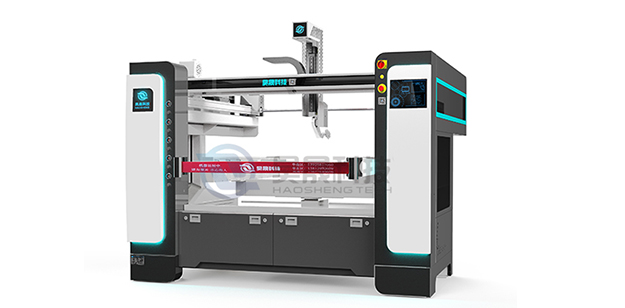The core of five-axis returner to realize five-axis operation lies in the precise control of its numerical control system and the reasonable design of its mechanical structure. Specifically, the five-axis repeater realizes five-axis operation through the following aspects:
Numerical control system control: The five-axis repeater uses A numerical control system, which can simultaneously control the movement of five axes (usually three straight axes X, Y, Z and two rotating axes A and B). The CNC system accurately calculates the motion track and speed of each axis according to the preset machining program, and sends instructions to the servo motor in real time to drive each axis to move according to the predetermined trajectory.

Mechanical structure design: The mechanical structure design of the five-axis repeater is the key to achieve five-axis operation. The mechanical structure usually includes the bed, column, headstock, workbench and other parts, which are connected to each other through high-precision guide rails, bearings and other connectors to form a stable processing platform. At the same time, two rotating axes (axis A and axis B) are cleverly designed and mounted on the headstock or workbench to achieve the rotation of the workpiece around the X and Y axes in the plane.
Five-axis linkage control: five-axis linkage control is the core technology of five-axis repeater to achieve complex machining tasks. In the machining process, the CNC system controls the movement of the five axes at the same time, so that they are linked according to the predetermined trajectory and speed, so as to achieve the accurate machining of the tool in multiple directions. This linkage control not only improves the machining accuracy and efficiency, but also greatly expands the processing range of the machine tool, enabling it to complete the processing of various complex shape parts.
Real-time feedback and adjustment: In order to ensure the accuracy and stability of the five-axis operation, the five-axis reloader is also equipped with a variety of sensors and devices, such as position sensors, speed sensors, force sensors, etc. These sensors monitor the motion state of each shaft and various parameters in the machining process in real time, and feed the results back to the CNC system. The CNC system adjusts and optimizes in real time according to the feedback information to ensure the smooth processing and stable and reliable processing quality.